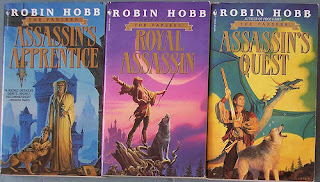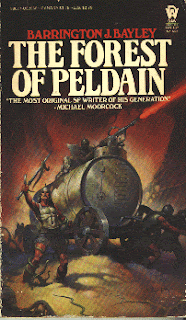The Mistborn series consists of three books by Brandon Sanderson, "
Mistborn
", "
The Well of Ascension
", and "
The Hero of Ages
".
It does has some traditional fantasy tropes, but it is not entirely a traditional fantasy novel.
The main character, Vin, is a young girl who grew up on the streets of the Final Empire, an empire controlled by a man known as the Lord Ruler. The Lord Ruler was once, long ago the hero of his people, but now he is an immortal force controlling them. Vin is half Ska and half Noble, the Ska are those without power, many live virtually as slaves, and are often used and disposed of at whim.
In this world there are powerful individuals known as Allomancers, possessing the ability to ingest special metals which temporary give them magical powers. Sanderson creates a variety of original magical abilities, many of which require a degree of skill to use, this is not your typical magic bolt or ball of fire type stuff.
Vin soon runs into the crew of Kelsier, known as "the survivor", because he escaped from a work-pit where people are sent to die. This crew takes an assignment to overthrow the Lord Ruler, and what follows from that consumes the first book.
Now to some problems. Sanderson seems to have issues with dialog--it crops up in most of his works( except "
The Way of Kings
" which shows marked improvement). On occasion dialog will seem forced, as if characters are mealy saying what they need to say in order to move the plot along, not because it is what they would naturally say.
Another quibble is that Sanderson's world is G rated, some might say a-bit too
disney. This is noticeable in most of his works, though I'm hoping his Way of Kings series will to suffer less of it as it progresses.
Some may be more bothered by these issues than others, I was mostly able to overlook them on account of how entertaining the novels are.
I feel that the first book is the strongest, Sanderson takes the story in a very different direction with the second and third books. Saying where it goes would spoil it, but while it is original and these follow-ups are still very entertaining, they don't stand as strong.
9/10





















